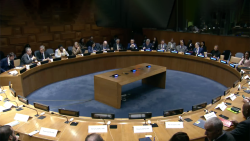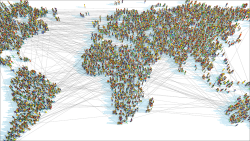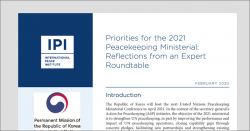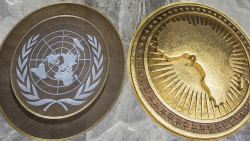
The upcoming Summit of the Future is an opportunity to turbocharge efforts toward a more peaceful, secure, and sustainable world. Discussions on revitalizing the work of the General Assembly and the Security Council reform can further serve as avenues toward a more relevant, coherent, efficient, democratic, and representative United Nations.IPI, together with the Permanent Missions […]
Read more




















